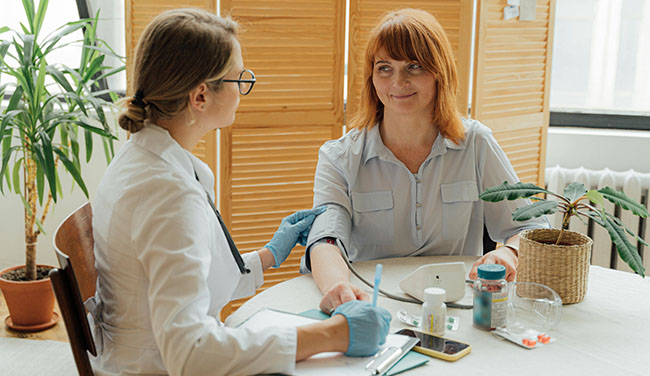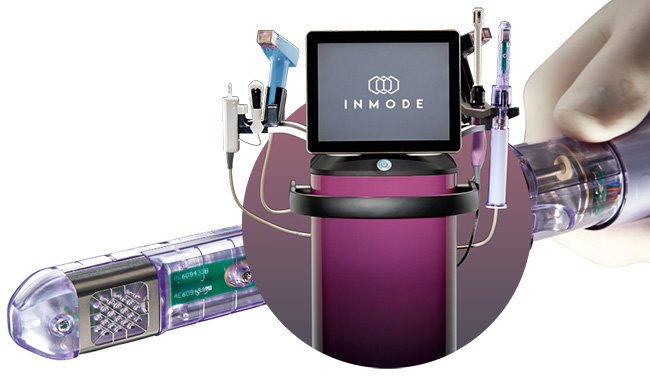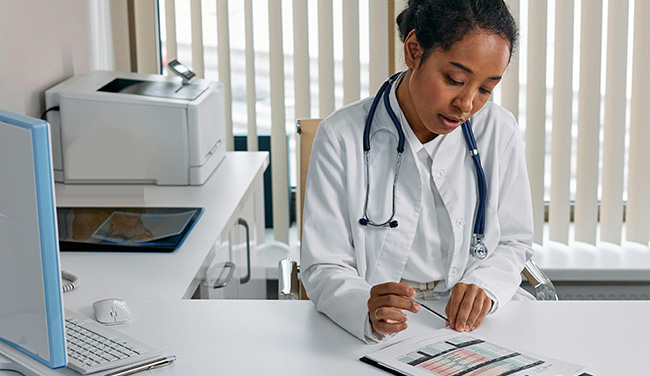Painful Intercourse Help
Experiencing Painful Sex? There are three main ways you can seek assistance.

Traditional Medicine
If your are experiencing painful intercourse, don't hesitate to ask your doctor what might be causing it. Describe when the pain occurs, how it feels, and how long it's been happening. These details matter and can help your doctor determine whether the issue is hormonal, related to vaginal tissue health, muscle tension, pelvic floor problems, or something else entirely. It's understandable if you feel awkward or even deeply personal, but this is exactly the kind of conversation you deserve to have with your doctor—honest, direct, and without fear of judgment. In addition, please understand that painful sex is not uncommon.
If intercourse is painful, ask your doctor what might be causing it. Describe when the pain occurs, how it feels, and how long it’s been happening. These details matter and can help us determine whether the issue is hormonal, related to vaginal tissue health, muscle tension, pelvic floor problems, or something else entirely.
Most importantly, know that painful sex is not something you simply have to live with. There are effective treatments, and a smart gynecologist will take your concerns seriously. The goal is to help you return to a comfortable, confident, and fulfilling sex life.
Get Help
Modern Technology
Modern technology has introduced effective, non-surgical treatments for painful intercourse, especially when the discomfort is linked to vaginal dryness, tissue thinning, or hormonal changes. One widely used option is Femilift, a fractional CO₂ laser that stimulates collagen production and improves blood flow in the vaginal walls. This helps restore natural lubrication and elasticity, often relieving the burning or tightness associated with menopause or postpartum tissue changes.
Another emerging solution is Morpheus8 V, a radiofrequency microneedling device designed for intimate wellness. It delivers energy deep into the vaginal and vulvar tissue to promote tissue remodeling and increased firmness. This can reduce discomfort during sex caused by laxity, sensitivity, or dryness, and may be especially helpful for women with genitourinary syndrome of menopause (GSM) or post-childbirth tissue changes.
Both treatments are performed in-office, require little to no downtime, and typically involve a series of short sessions. While not cures for all causes of painful sex, when properly selected and guided by a trained specialist, they can offer significant symptom relief and improve quality of life.
Get Help
Functional Medicine
Functional medicine approaches painful intercourse by addressing the root causes often focusing on hormonal balance, inflammation, gut health, and emotional well-being. Many women with pain during sex have underlying issues like estrogen deficiency, cortisol imbalances, thyroid dysfunction, or chronic low-grade inflammation. Functional medicine practitioners often use comprehensive lab testing to evaluate hormone levels, adrenal function, nutrient deficiencies, and markers of systemic inflammation, aiming to correct these imbalances naturally.
Treatment may include bioidentical hormone replacement therapy, especially for estrogen or DHEA deficiencies that contribute to vaginal dryness and thinning tissues. Alongside this, targeted nutritional support—such as omega-3 fatty acids, vitamin E, magnesium, and adaptogenic herbs—can reduce inflammation and support hormonal regulation. Functional medicine also often emphasizes gut health, as the microbiome plays a key role in estrogen metabolism and immune function, both of which are linked to vaginal health and comfort.
Get HelpWhat If You Could Find Relief From Painful Sex By Combining All Three Approaches?
A gynecology practice that has expertise in traditional medicine, functional medicine and has the latest technology would give you the best change to cure painful sex.
Painful sex is more than a physical symptom — it's a disruption to a woman's sense of self, intimacy, and trust in her own body. Many women are offered quick fixes or fragmented care that misses the deeper story. But there is no need to endure it in silence and alone. A board-certified gynecologist brings decades of diagnostic precision to that story, uncovering the root causes — whether they stem from hormonal shifts, pelvic floor dysfunction, or undiagnosed inflammatory conditions. With that clinical foundation, women are finally understood, not just treated.
Modern technology like FemiLift and Morpheus8 V introduces a new chapter in treatment: one where healing doesn’t require surgery, hormones, or guesswork. These innovations harness the body’s own regenerative power to restore tissue integrity, sensitivity, and comfort—often with minimal downtime and life-changing results. They’re not gimmicks; they’re the future of non-invasive women’s health.
But what truly sets this approach apart is the inclusion of functional medicine. With a certified functional medicine doctor on the team, root causes such as chronic inflammation, hormone metabolism issues, microbiome imbalances, and stress-related dysfunctions are identified and corrected. This multidimensional strategy doesn't just manage symptoms — it restores whole-person wellness. It's the most complete, effective path for women who are ready not just to cope, but to heal. Women don't just get better. They come back to life.
Why Three Is Better Than One
- Board-certified gynecology ensures accurate diagnosis, medical oversight, and expertise in structural and hormonal causes.
- Modern technology like FemiLift and Morpheus8 V offer non-invasive, proven solutions for vaginal rejuvenation and pain reduction.
- Functional medicine addresses hidden contributors — gut health, inflammation, hormones, trauma, and lifestyle — with precision and care.
- Collaborative care offers patients a full-circle, evidence-based pathway toward lasting relief and restored intimacy.
Painful intercourse is a solvable medical condition — when it's treated with the right expertise, the right tools, and a full understanding of the woman behind the symptoms. This approach combines the precision of board-certified gynecology, the power of regenerative technology, and the insight of functional medicine to treat the whole problem — not just part of it. It's not about masking pain. It's about restoring healthy tissue, hormonal balance, and confidence from the inside out. For women who have been overlooked, dismissed, or told to "just live with it" — this is where real healing begins, and where lasting relief becomes a reality.